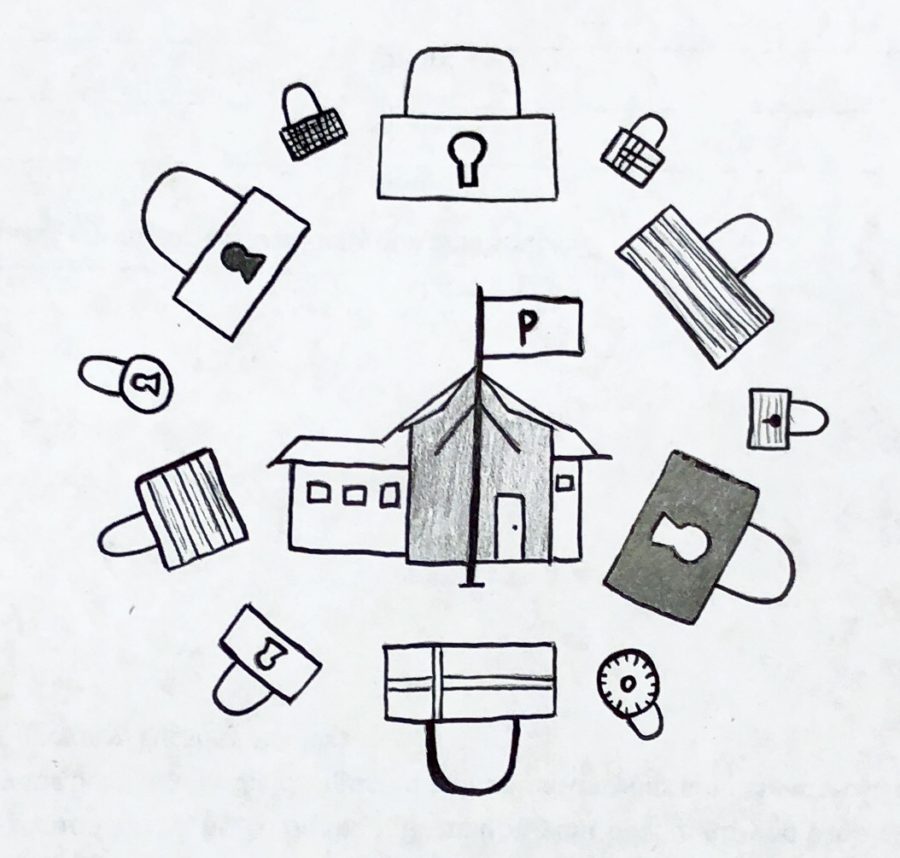Should Schools Have More Lockdown Drills?
Since the Columbine shooting 19 years ago, “187,000 students have been exposed to gun violence.” This startling statistic from the Washington Post highlights the concerns of every student, parent, and teacher in America. Preventing or at least minimizing these occurrences is a daily topic, and school lockdown drills are routinely brought up in the discussions, but are they effective? We have experienced lockdown drills, but is locking the door and hiding under a desk the best way to prepare? Perhaps this topic should be investigated more thoroughly.
There is no universal lockdown drill that all schools use, but one drill, ALICE method: Alert-Lockdown-Inform-Counter-Evacuate is common among many school districts around the country. The basic premise of ALICE lies in its ability to create student awareness and mobility.
“We don’t tell [students and staff] what to do. We tell them what they can do,” ALICE’s founder and former SWAT officer Greg Crane told National Public Radio (NPR). “Ultimately, they’re going to be the ones experiencing this danger, and we want them to be the ones to decide, ‘What is it that I can do that will increase my chance of survival?”
Some schools’ lockdown drills have been realistic enough to upset both students and parents, such as ones with “fake blood and masked men with plastic guns,”as the Ohio Attorney General’s office has suggested. Others have considered confronting shooters as a necessity for stimulating a real life shooting.
Current lockdown drills that merely engage in hiding under desks does not represent the level of tension and anxiety a shooting situation produces, so replicating such situations as accurately as possible just might be the lesser evil of the two.
“Students must learn how to barricade, how to lock down, how to run,” Emergency manager at Auburn University Chance Corbett told NPR. “When it gets to the point that [the shooters] are there to do the harm, do you really want your kid just to hide under the desk?”
Not everyone agrees. Dr. Dewey Cornell, a clinical psychologist from the University of Virginia told the Washington Post that, “the school building is just about the safest place your kid can be.” He says that subjecting students to lockdown drills doesn’t “make kids any safer and probably does some damage.”
Clearly, there is no consensus of opinion on this subject, but it seems logical to suggest that more research should be conducted and it should be done quickly. In the meantime, we should accept the fact that students should be exposed to more of the harsh realities of this potential tragedy, and learning to adapt to situations actively, instead of passively is a better way to address this issue. There should be alternatives to just hiding under a desk and waiting to become another victim.
Your donation will support the student journalists of Portola High School. Your contribution will allow us to purchase equipment and cover our annual website hosting costs.

Ajinkya Rane is one of the two Managing Editors, and it is his second year in that role. He has previously served as Co Editor-in-Chief and Sports Editor,...

Jane Zou is a staff writer and resident cartoonist for the Portola Pilot. As one of the few sophomores in the production, Jane is excited to contribute...




